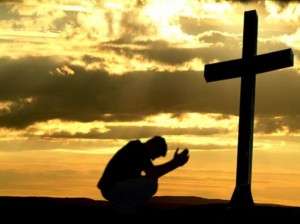“Come ye sinners, poor and needy, bruised and broken by the fall
Jesus ready stands to save you, full of pardoning love for all…”
~ from an old hymn by Joseph Hart
Over the last couple of weeks, I’ve heard from an African-American friend of how her children have been hit and degraded by white schoolmates for nothing more than being black. Then I heard from a Native American friend of how his son has lately been name-called and bullied at school for being part white. And now a little town in Missouri is torn apart by the shooting of yet another unarmed black teenager and an explosion of racial hurt, tension, and fear.
This world and we people in it are so messed up sometimes.
I write quite a bit on this blog about racial reconciliation, because it’s something the Lord has been teaching me about in recent years and a theme that traces through the stories I write. But I still don’t know how to do it very well.
I know it involves conversation, and friendship, and pushing boundaries, and asking forgiveness, and going out of my comfort zone…which I need to do more. But often I feel like I’m missing something. Sometimes the more I learn, I just get sucked into a circling storm of “My people have done so much damage, and I don’t know what to do to fix it except just grovel to the ground and beg those with skin of darker hue that they might someday, somehow, forgive me and let me off the hook.”
And that’s not particularly helpful to anyone.
On vacation with my family last week, I read the novel Zora and Nicky, an interracial romance by African-American author Claudia Mair Burney. (Here’s a great review on Novel Matters, by the way.) Her exquisite prose and finely crafted characters drew me in right away, but it was her unflinching confrontation of race in America today that struck me hardest. Yet even more than that, it was the solution she portrayed that brought tears to my eyes.
Zora and Nicky, two young people of different colors, struggle to find who they are, live authentic faith, and face the prejudices and misconceptions they both carry about the other because of their race. They both come from families and churches with major problems. But most of all, they both find that the only place for healing and true God-flowed relationship is at the wounded feet of Jesus. At the cross.
This story clicked something in my brain. My people—people of European background—have horribly oppressed many others in this world, because we’re sinners. And to complicate matters further, those we enslaved and oppressed are sinners too. And it’s because we’re all sinners that, despite the progress we’ve made over the last century and a half in America, these racial areas still get so very messy and complicated. Because none of us today are completely unbiased or unaffected by prejudice and resentment and cultural blindness.
We’re all sinners, poor and needy, bruised and broken by the fall.
The scenes that made me cry in Zora and Nicky came when the characters of diverse colors drew broken together before Jesus and realized that, no matter how much our sinful natures and cultural blindness have divided us, we truly are all from the same family tree—God’s.
And maybe if we could all just come to Jesus like a certain leper did, falling on our knees before Him and knowing we’re poor and needy, there we could be truly bonded together, the broken pieces made into one, at the foot of the cross.
“And a leper came to Jesus, beseeching Him and falling on his knees before Him, and saying, ‘If You are willing, You can make me clean.’
“Moved with compassion, Jesus stretched out His hand and touched him, and said to him, ‘I am willing; be cleansed.’” ~Mark 1:40
What do you think? Am I missing something here? Please comment and share!



SO happy that book ministered to you. I read it while writing a novel set on a 1790s NC plantation. Now I want to read it again. 🙂
Keep writing your books that speak to this issue. That’s another thing we can do. Put our hearts and our visions of reconciliation, one character at a time, into our stories.
Wow–that must have been something to write a book like that while reading a book like this. I still so hope that one of yours gets published someday!
And that’s a good point…that keeping writing is another thing we can do. I love how you put that, “one character at a time.” 🙂
Thanks so much for recommending Zora and Nicky to me, Lori!
I, too, believe prejudice is founded in our sin nature and that redemption, healing and forgiveness are founded in the love and sacrifice of Jesus.
As to what we can do? First is to love all people with the love of Christ. We can make sure we don’t treat or react to people differently because of their race (or any other trait). We can follow the example of Christ and remember that Jesus sat at both the table of the Jew and the Gentile, that He didn’t take up stones against the hypocrite or the betrayer, but encouraged them both to see truth. There is a need for humility, listening, and forgiveness on both sides of the issue.
Thanks so much for sharing, Jessica. Wise words.
I’m looking forward to reading Zora and Nicky. I’m encouraged by how it ministered to you regarding racial reconciliation. I believe becoming one in Christ involves spiritual warfare. A spiritual battle cannot be fought with carnal weapons of the flesh like emotional polemic. I’m not sure if the incident in Ferguson was triggered by racism. But, I’m convinced that the emotional response to the shooting of a young, unarmed black male has served to highlight the polarized views in this nation. Where are the united-as-one-Christians? Seems to me, it’s like a typical Sunday morning at 10:00 am. If we aren’t blatantly aware of prejudices and racism in this country, it’s simply because we’ve chosen to wear blinders. Racial division is obvious in churches and communities. This Sunday, look around and count the number of attendees who don’t share your skin color. When diverse lives don’t touch each other because of these boundaries, there are stereotypes and misunderstandings that result in racial bias. Jesus already died on the cross one time to overcome and resolve this separation (Jew/Gentile) issue. It’s not going to happen again. It’s up to us to be the change that we want to see. It’s an intentional, conscious choice to be inclusive—not only through fictitious characters in our writing, but also in real life through our own personal character. No matter how uncomfortable we are at first. God’s grace is sufficient for any level of discomfort, especially if it means uniting the church. By the way, it is my understanding that Michael Brown was the 4th unarmed black male that was killed by police within the last month alone. We have to stop what seems to be a negative pattern. That might better explain the outrage over this incident. Thanks for an opportunity/invitation to comment.
Thanks so much for sharing, Sandra–your words are convicting to me to take more action to reach out and get beyond my comfort zone in real life, not just in writing. And that’s horrifying that Michael Brown was the 4th young man killed like this in a month–I guessed that the outrage was sparked by the AA community being sick and tired of this sort of thing happening, but I didn’t realize it was quite that bad. Truly, we need the Lord to work and His church to rise up…for as you said and have said before, this is a spiritual battle.
Thanks for your wise words, friend.
[…] friend and critique partner Sandra Barnes pointed this angle out in her comment on my recent post, “Come Ye Sinners, Poor and Needy: Racial Reconciliation and Our Sinful Hearts.” I asked her permission to quote from her comment […]